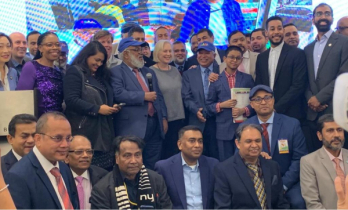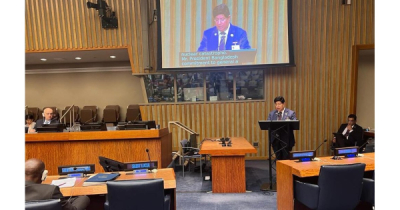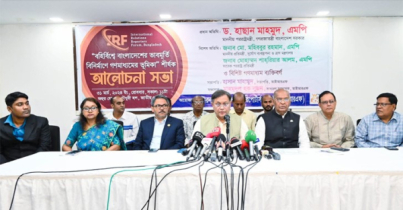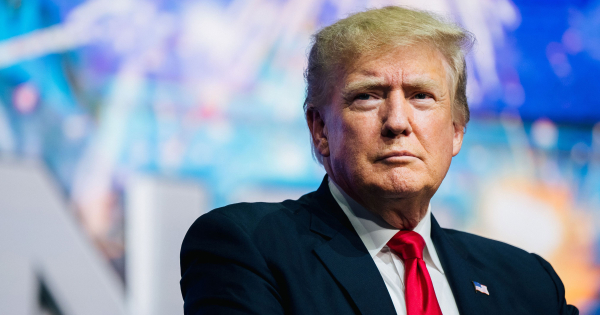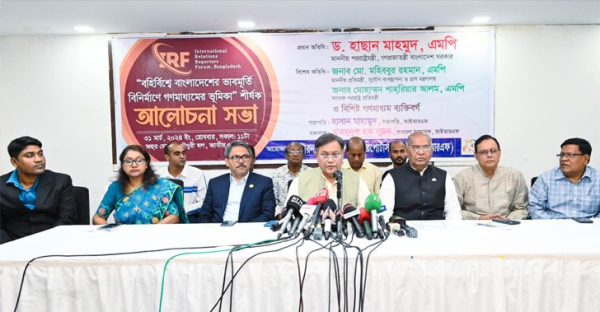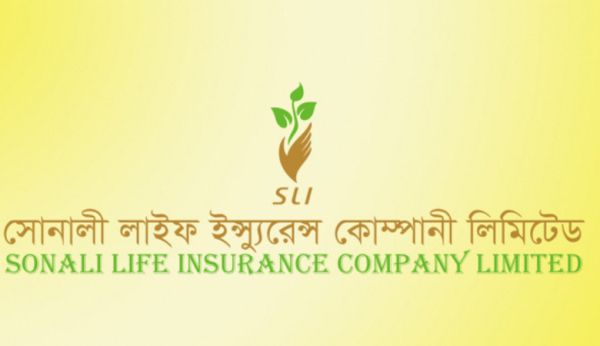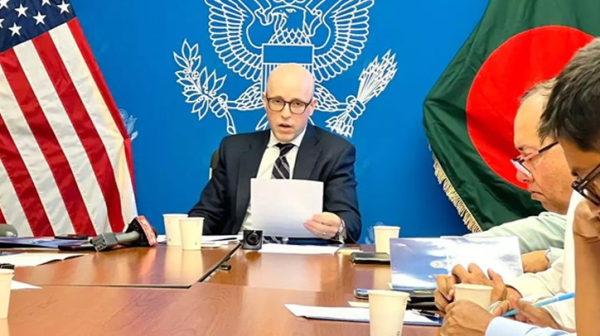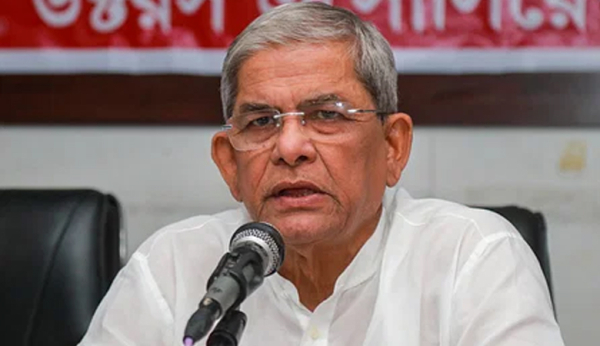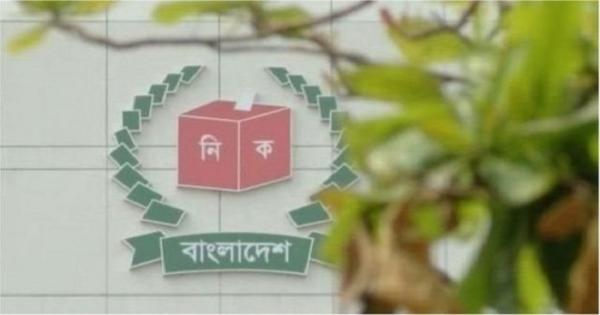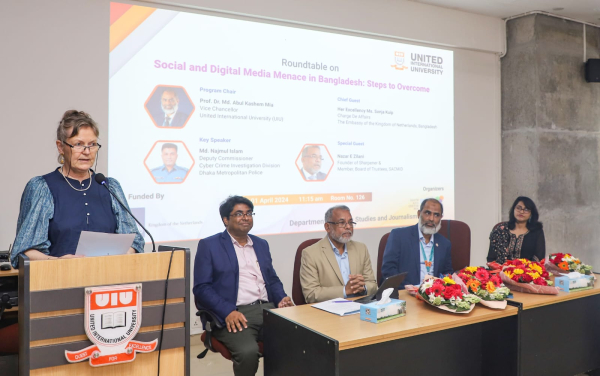World No Tobacco Day 2021, Factsheet
World No Tobacco Day 2021, Factsheet
 |
| World Anti Tobacco Day 2021 |
Tobacco is the only legal and highly accessible consumer product that kills up to half of its users when used exactly as intended by the manufacturer. However, tobacco's trail of destruction goes beyond mere consumption. Each stage of tobacco cultivation, processing and marketing causes far-reaching damage to public health, environment and society at large. Based on mounting scientific evidences, one can say that a society that cares for its people is a society that does not tolerate tobacco.
Every year, 31 May is observed as World No Tobacco Day (WNTD) around the world. Considering the extent of tobacco's devastation, this year the theme of WNTD is: Commit to quit. The saying goes that “quitters never win,” but in the case of tobacco, quitters are the real winners. In Bangladesh, the theme for World No Tobacco Day 2021 is Asun Amra Protigga Kori, Jibon Bachate Tamak Chari. As a country, Bangladesh is committed to quit tobacco nationwide by 2040. To realize the vision, the time calls for effective tobacco taxation, tobacco control law amendment and its proper implementation.
Why Should You Quit?
• For Yourself
There are immediate and long-term health benefits of quitting. Tobacco users are two to four times more likely to get heart disease (heart attack and stroke) than nonsmokers. Tobacco use, responsible for 25 percent of all cancer deaths globally, are linked to at least 20 cancer types. Particularly, lung cancer risk is around 25 times higher in tobacco users compared with those who have never smoked. About 80% of all COPD (chronic obstructive pulmonary disease) is caused by cigarette smoking and smokers are 13 times more likely to die from COPD than non-smokers. Smokers face a 40 – 50 percent higher risk of developing severe disease and death from COVID-19, says WHO.
Against the backdrop of tobacco's health threats, quitting comes with a lot. Abstaining from tobacco use for a whole year decreases the risk of coronary heart disease is about half that of a smoker's. Within 10 years of quitting, your risk of lung cancer falls to about half that of a smoker. Compared to those who continued tobacco use, those who quit at about 30-40 years of age, gain almost 9-10 years of life expectancy.
• For Your Family and Others , ,
As per WHO's Global Adult Tobacco Survey (GATS) 2017 report, currently 38.4 million people in Bangladesh face secondhand smoking in work, transport and other public places on a regular basis. About 40.8 million (39%) Bangladeshis are exposed to passive smoking at home, with the majority being women. Close to 37% of women are victims of passive smoking at home, even though only 0.8% of women are smokers. Child health is also under threat because of tobacco use. A recent study conducted among school children of Dhaka has found out that 95 percent of school-going children have higher nicotine in their saliva samples which is undoubtedly a result of passive smoking.
The use of tobacco causes around 126,000 deaths in Bangladesh a year. The financial loss (due to medical expenditure and loss of productivity) incurred per year due to tobacco use exceeds BDT 30,560 crore. As per GATS 2017 report, currently 35.3 percent (37.8 million) of adults in Bangladesh use tobacco. A matter of particular concern is that currently the lowest income people have a much higher rate (48%) to use tobacco than the highest earning class (24%). Between 2009 and 2017, the average monthly expenditure for bidi has increased by 50% for each individual smoker. Currently, a cigarette smoker spends on average BDT 1077.7 per month for cigarettes. On the contrary, the average monthly expenditure for education and health of a household is only BDT 835.7 and 700 respectively. (Household Income and Expenditure Survey 2016). If the money spent on tobacco could be channeled into spending for education, health or the fight against human poverty, the economic condition of families could be radically improved. In a research on crowding-out effect of tobacco expenditure in households, it was revealed that families with tobacco users need to spend a lot more on medical treatment than on education, clothing, housing, power and transport. In addition, tobacco induced increase in medical expenditure, loss in income and productivity compels families to curb expenditure on nutritious food, education, thus making poor families even poorer (Tobacco and Poverty, Tobacconomics Policy Brief, 2018).
Emerging Tobacco Products (ETPs): Wrong Way to Quit
Awareness with regard to the detrimental effects of tobacco is on the rise all over the world. The number of smokers in developed countries is also declining. Tobacco industry is now capitalizing even people's desire to quit. Companies are marketing emerging tobacco products (i.e. vape, e-cigarettes etc.) products as ‘safe alternatives’ and presenting these products in the same light before policymakers to escape tougher regulations. However, growing body of evidence and research has refuted such claims. The World Health Organization (WHO) is Report on the Global Tobacco Epidemic 2019 identified e-cigarettes and other emerging tobacco products as ‘harmful products’. The health implications of vaping and the use of other emerging tobacco products have come to the fore with the 2019 outbreak of lung illness linked to vaping products.
The Way Forward
While the Honorable Prime Minister has declared her vision for a tobacco-free Bangladesh by 2040, tobacco companies’ relentless interference in policymaking, complex and weak tobacco tax structure, loopholes in tobacco control law and lax implementation have prevented the country from making considerably progress towards that end. The following measures, if adopted without any delay, would significantly curb tobacco use, decrease diseases and deaths caused by tobacco and contribute to achieving tobacco-free Bangladesh by 2040.
• Tax and Price Measures:
- Introduce specific taxes on cigarettes and all tobacco products for bringing these products beyond the purchasing power of the masses, particularly the poor and the youth.
- In mid-term (2021-22 to 2025-26), reduce the gaps in prices and tax rates among different cigarette tiers and decrease the number of tiers from 04 (four) to 02 (two).
- Adopt and implement a simple and effective tobacco taxation policy, one for every five years, which would contribute significantly in reducing tobacco use and increasing government revenues.
• Amendment of Tobacco Control Law
- Remove the provision of “designated smoking area” and ban smoking in all public places, work spaces, and public transports to ensure an absolute tobacco free environment;
- Ban the display of tobacco products at points of sale;
- Ban ‘corporate social responsibility’ activities of tobacco companies;
- Ban the sale of single sticks and unpackaged smokeless tobacco;
- Ban the sale and import of e-cigarettes and heated tobacco products;
- Allow for stricter rules on packaging including increases to the size of graphic health warnings.
Reference
https://www.who.int/campaigns/world-no-tobacco-day/world-no-tobacco-day-2021
https://www.who.int/health-topics/tobacco#tab=tab_1
https://www.euro.who.int/en/health-topics/disease-prevention/tobacco/news/news/2020/2/tobacco-use-causes-almost-one-third-of-cancer-deaths-in-the-who-european-region
https://www.cdc.gov/tobacco/data_statistics/fact_sheets/health_effects/effects_cig_smoking/
https://www.who.int/news/item/28-05-2021-who-supports-people-quitting-tobacco-to-reduce-their-risk-of-severe-covid-19
https://www.who.int/news-room/q-a-detail/tobacco-health-benefits-of-smoking-cessation
Global adult tobacco survey (GATS): Bangladesh, 2017. World Health Organization; 2018. Available at: https://ntcc.gov.bd/ntcc/uploads/editor/files/GATS%20Report%20Final-2017_20%20MB.PDF
https://academic.oup.com/ntr/advance-article/doi/10.1093/ntr/ntx248/4677311?guestAccessKey=84169f0f-7822-4584-8e94-258a311bd235
Faruque GM, Wadood SN, Ahmed M, Parven R, Huq I, Chowdhury SR. The economic cost of tobacco use in Bangladesh: A health cost approach. Bangladesh Cancer Society. February 23, 2019. Available at: https://drive.google.com/file/d/1wJ2b9XISR0n412teaIhkTW5Kn2wugOW1/view
Husain MJ, Datta BK, Virk-Baker MK, Parascandola M, Khondker BH (2018) The crowding-out effect of tobacco expenditure on household spending patterns in Bangladesh. PLoS ONE 13(10): e0205120.
Chaloupka FJ and Blecher E. Tobacco & Poverty: Tobacco Use Makes the Poor Poorer; Tobacco Tax Increases Can Change That. A Tobacconomics Policy Brief. Chicago, IL: Tobacconomics, Health Policy Center, Institute for Health Research and Policy, University of Illinois at Chicago, 2018.
A Report of the Surgeon General 2016 on E-Cigarette Use Among Youth and Young Adults. Available at:
www.cdc.gov/tobacco/data_statistics/sgr/e-cigarettes/pdfs/2016_sgr_entire_report_508.pdf
WHO report on the global tobacco epidemic 2019. Available at: https://apps.who.int/iris/bitstream/handle/10665/326043/9789241516204-eng.pdf?ua=1
https://www.cdc.gov/tobacco/basic_information/e-cigarettes/severe-lung-disease.html#latest-outbreak-information

আরও পড়ুন

জনপ্রিয়
- Harvard professor to join McWeadon-Faith Bangladesh Webinar on e-learning
- Bangladeshi-American to be first South Asian Lt Commander in NYPD
- Maria Howlader made new Chair of SAFA Women Leadership Committee
- Intl Girls in ICT Day
Virtual roundtable on Accelerating Digital Inclusion for Girls held - JMI brings first Bangladeshi-branded KN95 masks
- Professor Zahir receives `Most Outstanding Professor’ Award
- C-BED Programme Launched in Bangladesh
- Foreign ministry issues 8-pnt statement over Rohingya relocation
- Symphony launches new Smartphone Symphony Z30 Pro
- Vitol’s trades cause LNG prices soaring, BD affected







